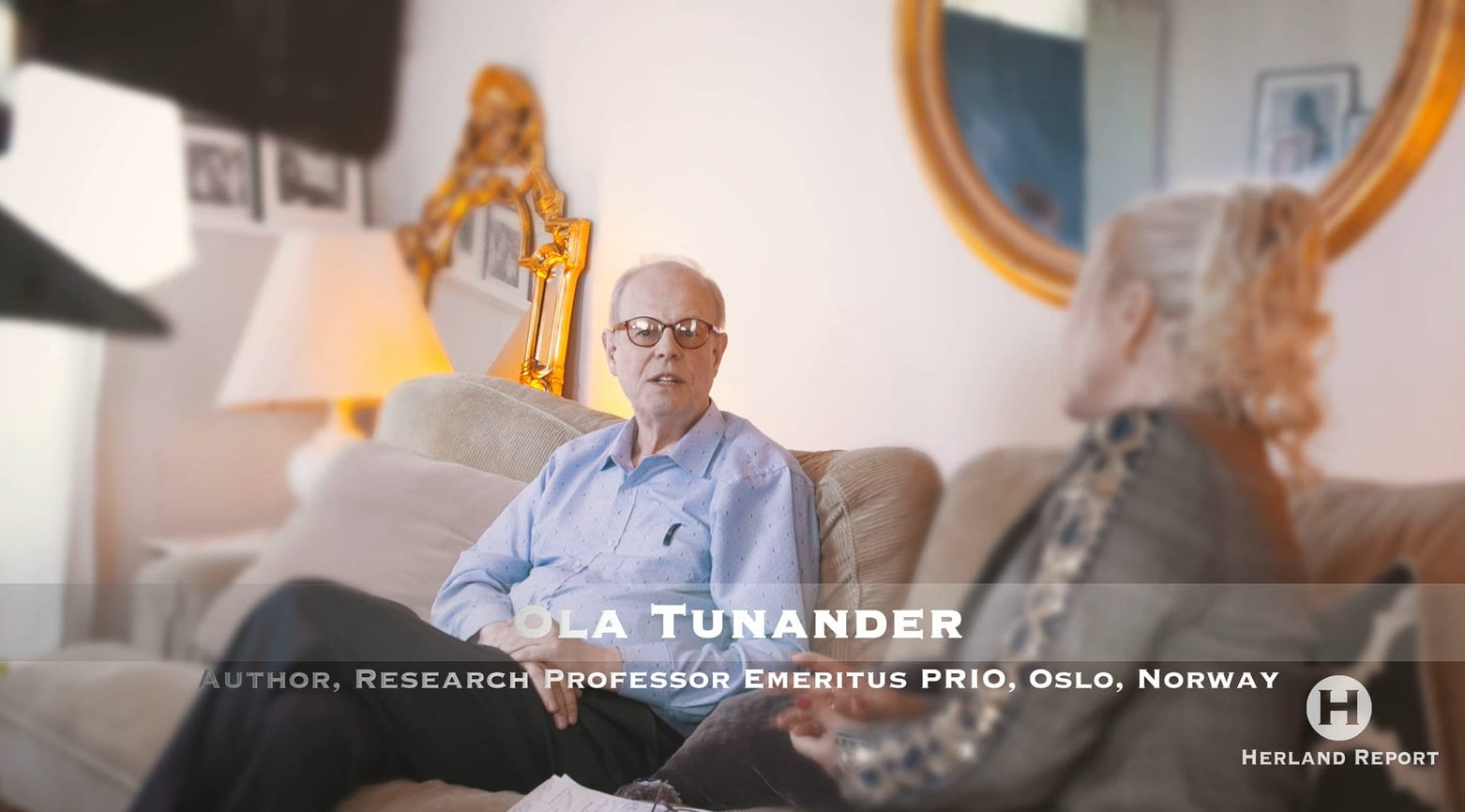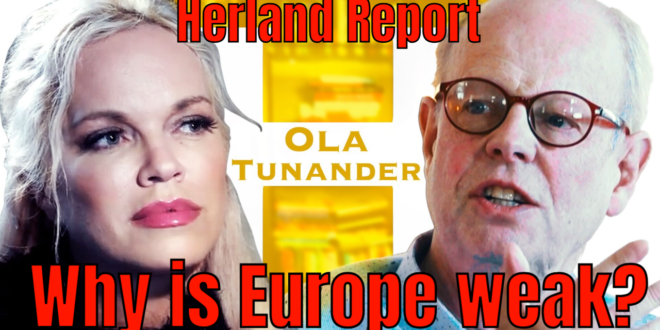In a thought-provoking Herland Report interview, Professor Ola Tunander, a professor emeritus at the PRIO Institute in Oslo, Norway, speaks to Hanne Nabintu Herland about the geopolitical complexities surrounding NATO and its evolving role over the past two decades, particularly in the backdrop of the Libyan War.
He argues that NATO has shifted from a defensive alliance into an aggressive force that pursues the foreign policy aims of the Anglo-American leadership.
The Decline of European Power: Tunander critiques the naive perceptions held by the Western public about NATO, emphasizing that crucial decisions and intelligence predominantly reside within the capitals of major powers like Washington, London, and Paris, rather than at NATO’s Brussels headquarters.

He reflects on the misrepresented motives behind the intervention in Libya, asserting that the purported mission to protect civilians masked underlying motives of colonial ambitions and access to oil.
Tunander notes a troubling trend within Western media, which has become increasingly consolidated and complicit in perpetuating misleading narratives that justify military interventions.
The discussion also covers the loss of independent foreign policy voices in Europe, the catastrophic aftermath of the Libyan conflict, and the alignment of Western powers with factions whose values often contradict the stated principles of democracy and human rights.
The conversation culminates in a critical examination of the consequences of deception in warfare, the dynamics of global power shifts, and the implications for Western credibility in the international arena.
The Decline of European Power: The conversation covers how NATO has evolved from a defensive organization to one that resembles an offensive force determined by Anglo-American interests.
The effectiveness of NATO is heavily reliant on a few major capitals (Washington, London, Paris), where intelligence and decisive actions are concentrated, rendering NATO’s Brussels apparatus relatively powerless. This centralization undermines the alliance’s supposed collaborative nature.
The transformation of NATO and its mission can be traced back to post-Cold War dynamics, where high-level decisions often ignore historical agreements made with countries such as Russia, leading to mistrust and geopolitical tensions. The consolidation of American media ownership has significant implications for public understanding of foreign policy, blurring the lines between military action rhetoric and corporate interests, especially regarding the military-industrial complex.
RELATED ARTICLES:
- Self-Determination is denied for Europeans, Joaquin Flores elaborates on European censorship of its indigenous population
- New Era defined by Strong Men with Hard Power, not Soft Power Feminism
- How Totalitarian Socialism Killed Free Speech in Europe – Watch Conservatives Erik Selle and Hanne Nabintu Herland discuss
- 2025: Colossal Changes as Trump Shreds Socialist-Globalist Norms and Pushes Conservative Values
- Discover how historic Capitalism provided Freedom, Karl Marx’ Socialism fosters Laziness and Complacency
The Decline of European Power: A small number of corporations dominate the American media landscape, influencing public perception and even justifying military actions. The war in Libya is discussed, and how it was driven by ulterior motives rather than the stated humanitarian goal of protecting civilians.
The narrative surrounding the Libyan intervention misled the public, portraying the conflict as a righteous crusade when it was fundamentally about resource control. The aftermath of military interventions like that in Libya resulted in the complete breakdown of state structures, creating a vacuum for extremist factions.
European countries’ aspirations for independent foreign policies have diminished following the Cold War, leading to increased alignment with U.S. policy, Tunander says. The discussion also touches on the rebalancing of power in the East, highlighting increasing collaboration among countries like China and Russia, as well as growing skepticism towards U.S. motives globally.
Tunander emphasizes the role of media and political leaders in propagating incorrect narratives surrounding the Libyan war, showcasing how the initial claims regarding civilian casualties were based on absolutes that lacked evidence and were heavily biased.
The cyclical pattern of military intervention, resulting in state failure and extremism, is exemplified by Libya, where external support not only empowered opposition factions but also led to widespread chaos and instability.
The historical context of Western interventions demonstrates a paradox where proponents of human rights ended up supporting extremist factions whose ideologies undermine secular governance and promote violence, ultimately destabilizing regions further.
The Decline of European Power: The discussion suggests that a critical reassessment of foreign intervention policies, particularly within Europe and the West, is necessary, focusing on historical lessons learned from Libya, Iraq, and similar cases to avoid repeating catastrophic mistakes in international relations.
As global dynamics shift and new power centers emerge, the lessons learned from the Libyan conflict resonate deeply, urging policymakers to foster transparency and accountability in decision-making processes while engaging with a more diverse array of global voices. NoteGPT.










